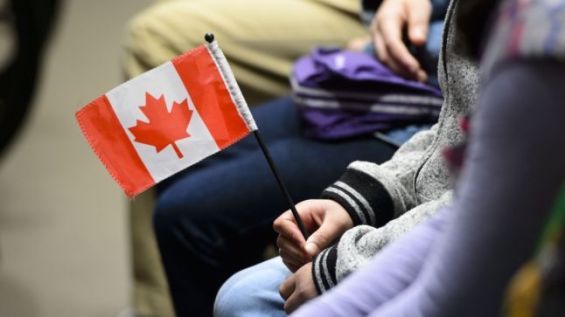On Monday, Canadian Prime Minister Justin Trudeau announced his intention to step down as leader of Canada's ruling Liberal Party once a new leader is chosen.
Having served as Liberal Party leader for 11 years and prime minister for nine, Trudeau told reporters during a news conference in Ottawa that his resignation is motivated by «what is in the best interests of Canadians».
While a new leader for the Liberal Party is expected to be designated by March, the Canadian Parliament will remain suspended. Trudeau's resignation comes against the backdrop of a severe housing crisis in Canada, exacerbated by soaring home prices and declining spending power.
This housing crisis has been linked to immigration policies introduced by the Liberal government, with some critics attributing skyrocketing housing prices to the influx of immigrants.
But does Trudeau’s political exit truly stem from his immigration policies? Are immigrants genuinely to blame for Canada’s housing crisis? Before addressing these questions, it is essential to examine how Canadian views on immigration have shifted in recent years.
«In the last year, I think there has been a notable shift in Canadian views on immigration, questioning the previously held belief that immigration is widely supported», Amine Karkach, an international consultant in political communication and public affairs, and a former political advisor at the Canadian House of Commons, told Yabiladi.
Trudeau's fading popularity
Offering an overview of the situation in Canada, Karkach explained that «the majority of Canadians now hold negative views toward immigration, driven by concerns over limited resources such as housing, healthcare, and social services». These sentiments have contributed to Trudeau’s declining popularity in polls, which currently favor the Conservative Party (right-wing) led by Pierre Poilievre, who has promised to keep immigration levels aligned with the number of new homes being built.
Trudeau’s waning support is not only evident among Canadians but also within his own party. «For more than a year, Trudeau has trailed his main competitor, Pierre Poilievre, in the polls. This has created internal pressure within the Liberal Party», the Moroccan consultant explained. This pressure stems from «Trudeau’s inability to reassure his caucus and MPs that they will be re-elected under his leadership».
Adding to this were by-election losses suffered by the Liberal Party. «In 2024, the Liberal Party lost three by-elections», Karkach elaborated, noting that these defeats occurred in Liberal Party strongholds.
Another key factor behind Trudeau’s resignation is the challenging political and economic landscape. «The context changed radically after the pandemic. For many incumbent governments, the post-pandemic economic situation has been difficult», Karkach argued.
With Trudeau stepping down and federal elections initially scheduled for October 2025, Canadians could face early elections. This could pave the way for a right-wing government promising tighter immigration controls.
«The Conservative Party of Canada is well-positioned to form the next government», Karkach observed, citing the party’s victories in recent by-elections within traditional Liberal strongholds.
«The Conservatives won two key by-elections, one in Ontario and one in British Columbia. This is significant because it signals the Conservative Party's rising influence—not just in polls but in tangible political outcomes».
Housing crisis unfairly blamed on immigrants
According to Karkach, the Conservatives are likely to capitalize on Trudeau’s handling of the housing crisis. However, framing immigrants as the root cause of the housing crisis might prove challenging for them.
«The politics around immigration in Canada are very complex because the country’s economic growth relies on two pillars: productivity and population growth», Karkach explained. «Canada’s productivity issues cannot be resolved in the short term, but population growth can be addressed through immigration».
The Liberal government has already announced plans to reduce temporary and permanent immigration levels for 2025 and 2026. «This is a surprising move», Karkach noted, as the Liberal Party has historically been popular among immigrants and newcomers.
Despite negative public opinion on immigration, Karkach emphasized that immigrants are not responsible for the housing crisis. «It’s very easy for governments and populist parties to blame immigrants for Canada’s current crises. But the reality is far more complex».
In fact, population growth driven by immigration is not the sole factor straining the housing and rental markets. «Canada’s aging population, the formation of new households, and the impoverishment of the middle class also contribute», Karkach pointed out.
Moreover, successive Canadian governments have failed to build sufficient affordable housing for the middle class. «This has exacerbated the crisis», Karkach argued.
Even with these challenges, Karkach believes the Conservative Party’s campaign rhetoric on immigration will be cautious. «It’s complicated for Pierre Poilievre to run an anti-immigration campaign, as many key swing ridings in Canada have large immigrant populations», Karkach explained.
As Canada grapples with these issues, questions arise about the future of the «Canadian dream». Will tighter immigration rules and skyrocketing housing costs erode its appeal? According to Karkach, Canadians remain optimistic.
«I think people are experiencing a temporary crisis. But they still believe in the Canadian dream», he concluded. «Even with higher taxes and living costs, immigrants value Canada’s strong public services and infrastructure».





 chargement...
chargement...













